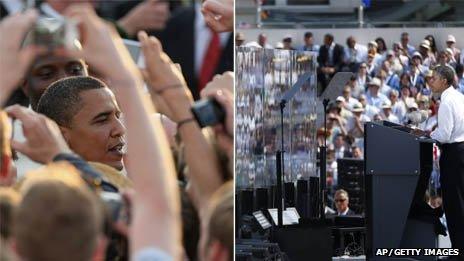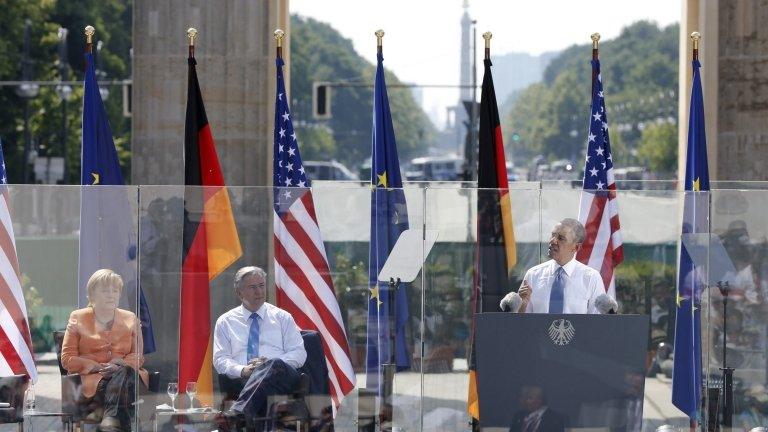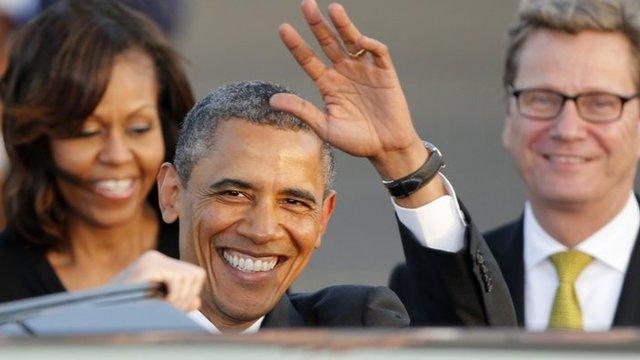Mardell: No hard truths in Berlin
- Published
- comments

Times change: Barack Obama near Brandenburg Gate in 2008 (left) and 2013 (right)
It's a sweltering hot day in Berlin. Barack Obama got a cheer for taking off his jacket and urging others to do the same. It wasn't the last of his exhortations, by any means.
As for John Kennedy and later Ronald Reagan, this great city and its tortured history were his backdrop and his chosen symbol.
But theirs were times of danger and hope. Part of his point was that the West must not stop striving - nor think history has stopped.
He said Berlin stood for peace and for justice, for those who wanted to tear down walls of all types.
His hopes and aspirations ranged far and wide across a liberal wish list, from democracy to climate change, to a reduction in nuclear weapons to an end to Aids, from gay rights to girls' education.
In fact it wasn't that different from the speech he gave here in 2008, as a candidate.
But the context has changed: then thousands packed into the streets. Today he was behind bulletproof glass and the streets were empty, the crowds at home, put off by the security that emptied the centre of a city. The audience was small and invited.
Mr Obama makes an intriguing contrast with Kennedy, who made his famous speech here 50 years ago. They were both icons for a generation who wanted change and demanded something different.
Kennedy was an icon of promise, his promise cruelly cut short by murder. But Mr Obama, equally a repository for the world's optimism, is into his second term now.
Yearning for freedom
The news conference with Angela Merkel seemed to deal with more realistic themes than the speech. He was asked tough questions about the Taliban and Afghanistan, about spying on foreigners and arming the Syrian rebels.
His answers were considered and fairly full. He also dealt with the issue of spying in his speech but in general there seemed to be a disconnect between his high-flown rhetoric and the difficult world in which he leads a superpower.
Yes, people yearn for freedom. He maintains they deserve the West's help. But he does not go on to explain or explore the limits of what can and should be done.
That is all the more frustrating because it is not a vague academic thing to mull over - it has been the question he has confronted ever since the Arab Spring began and the one he faces now in Syria.
He loves conjuring the power of the people but hesitates before describing the limits on the power of politicians.
- Published19 June 2013

- Published19 June 2013
